‘Challenging summer’: Hampton Beach businesses thrive in year of uncertainty
HAMPTON BEACH — The end of the Seafood Festival marks the official end of the summer tourist season at Hampton Beach, offering a chance to look back on how the Seacoast fared during one of the most trepidatious economic times many can remember.
Spring began with a continuation of hurdles confronting local businesses: New Hampshire’s labor shortage, the lingering presence of the COVID-19 pandemic, and its resulting supply and distribution delays that led to rising prices for raw and finished goods.
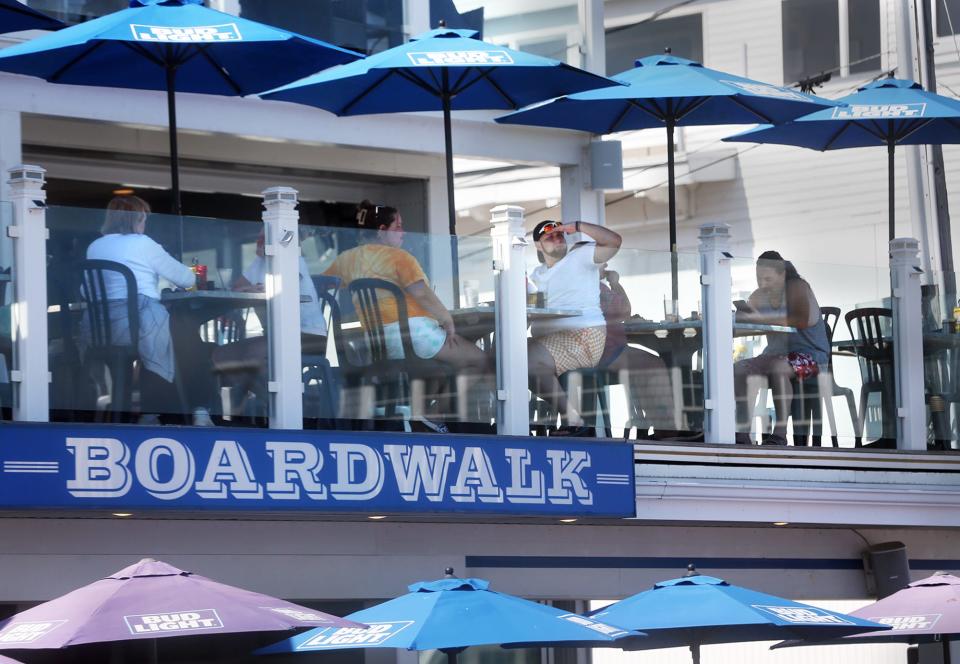
But this year, in part due to the war in the Ukraine, energy and fuel prices soared, with gas at more than $5 a gallon and diesel fuel closing in on $7 a gallon.
As the rate of inflation rose to percentages not seen since the 1970s, it monopolized news reports daily both locally and across the nation. Many worried the scary economic picture would keep vacationers home and negatively affect the Granite State’s financially vital tourist industry.
Oyster Week returns to the Seacoast: Here's what's planned for festivities
At Hampton Beach, however, business owners report that though economic factors presented challenges, all in all, the summer of 2022 was amazingly fruitful.
“I’ll take it,” said Al Fleury, owner of four beach restaurants, along with a scooter shop, hotel and numerous rental cottages. “The cost of goods was the main challenge for me. Labor was a challenge, but we were able to overcome it. I think we broke records.”
Hampton Beach Pelham Hotel owner and Hampton Selectman Chuck Rage agreed.
“We had amazing weather, which helped enormously,” Rage said. “We definitely had a lot of French-Canadian visitors. They were excited to be here, and we were excited to have them.”
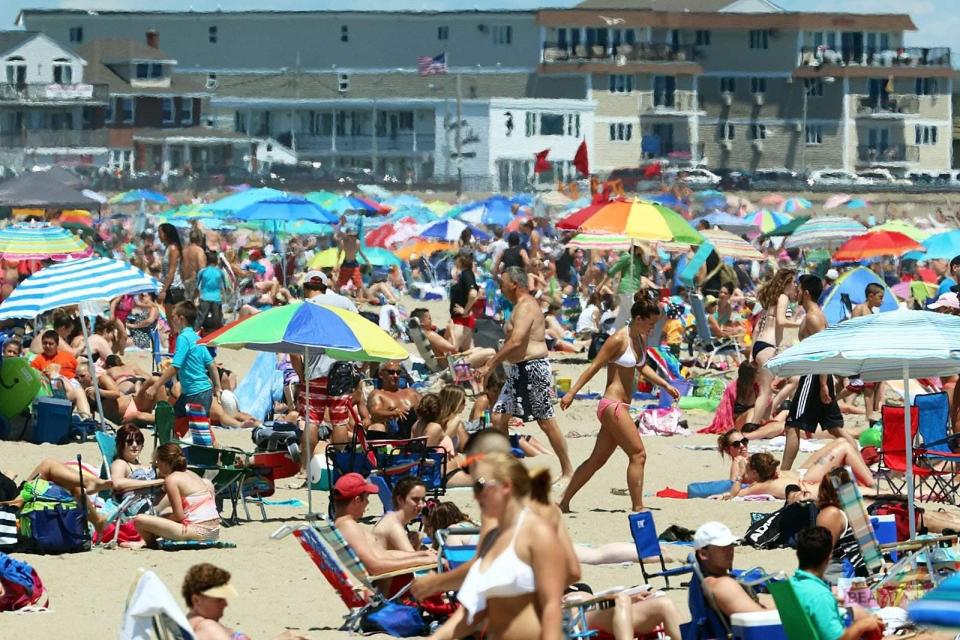
Canadian and beach rental visitors market strong
Rage said since Canadians come from afar, their visits are often longer, staying a week or more, instead of just a few days or weekends. Canadian visitors also tend to purchase more than just lodging and meals, he said.
“They buy a lot of things: clothing and souvenirs, which is good for the retailers,” Rage said.
Fleury said until they stopped coming to the region during the height of the pandemic lockdown, he’d underestimated the financial impact Canadian visitors brought with them. The effect of their return this year, however, impressed him.
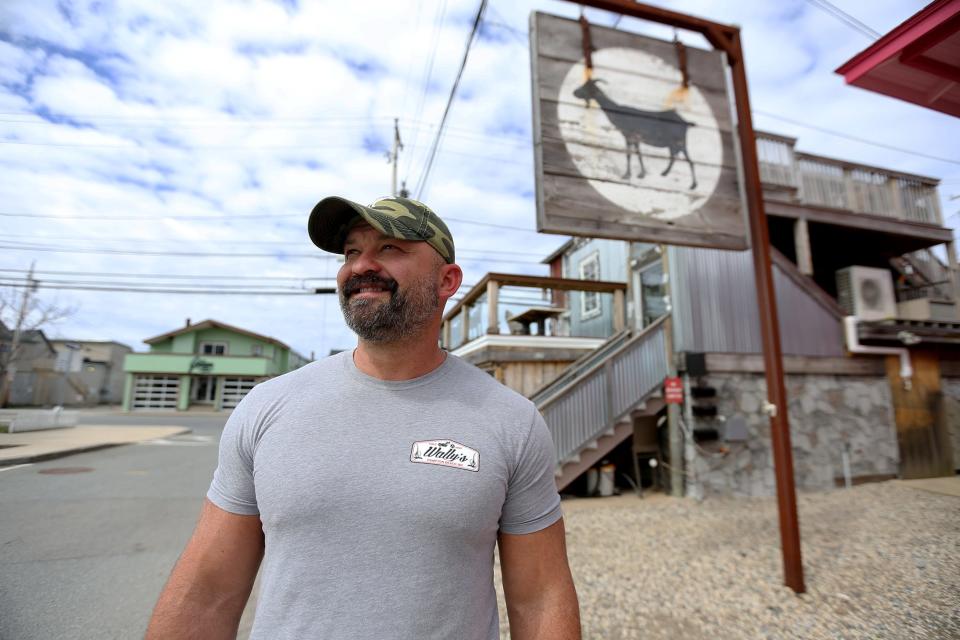
Rage found that this year’s visitors were coming from farther away, from upstate New York, western Connecticut and Rhode Island. Rage, also one of Hampton Beach Village District’s commissioners, believes Hampton Beach is attracting more people who had headed for “the Jersey Shore” previously. He believes that’s because they see Hampton Beach as offering a bigger bang for their travel buck.
More: Hampton community raises $34K in three days to help Cinnamon Rainbows surf shop after fire
“New Jersey charges for everything, like going on the beach or viewing sand castles,” Rage said. “We don’t do that. Here (the Beach Village District) offers free concerts every night, free fireworks every Wednesday. We’re getting a good reputation.”
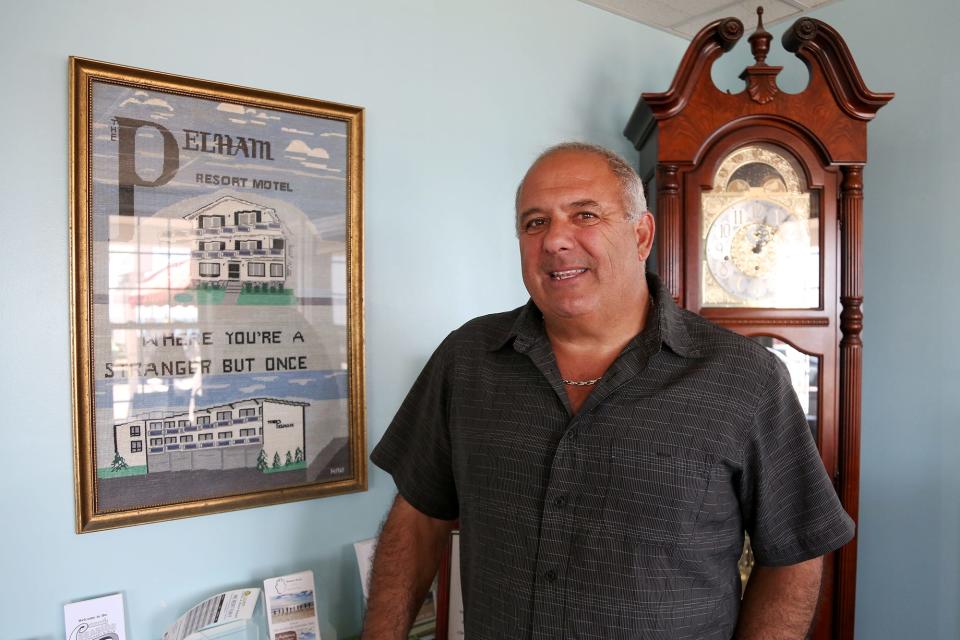
Both Fleury and Preston Reusch, of Preston Real Estate, said beach rentals were strong this year. Reusch said for the past two years, due to the pandemic, rentals were a bit off, but that was not the case during the summer of 2022.
“We start booking rentals in February,” Reusch said. “This February we had a line out the door and down the sidewalk on opening day. Most of our renters come for seven days, some for two or three weeks. Our major number of renters are from Massachusetts, New Hampshire and Vermont, a smaller number from New York.”
Fleury said rental weeks for the dozens of beach cottages he rents were nearly all filled by spring.
“Everything rented by May,” Fleury said. “And they all showed up; there were very few cancellations.”
An explosive find: A Hampton family found a Civil War artifact in an Exeter river
High gas prices took a toll
Rage and Fleury expressed a belief the high price of gasoline reduced the number of “day-trippers” who normally flock to Hampton Beach on sunny days from nearby locations, then return home at the end of the day.
Fleury said, though he hasn’t run all the numbers yet, he won’t be surprised to find his restaurants’ lunch revenues might be a bit soft, a sign of reduced day visitors. And as an aside, Reusch noticed that vehicle traffic appeared not to be as tightly packed this year as in pre-pandemic years.
But when it came to last weekend’s Seafood Festival, Rage thought, “Saturday was one of the better days ever.”
Ready for Game Day: Wing-Itz in Hampton unveils new outdoor patio
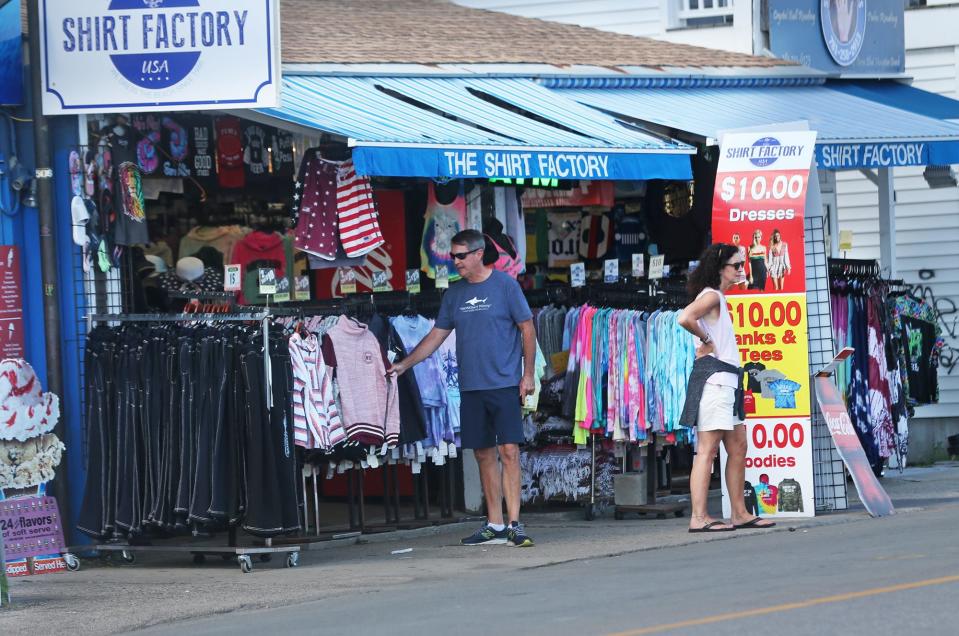
A good season, but not without its hurdles
By far, Fleury and Rage said inflation and the higher cost of goods and services needed to run businesses were the most significant economic factors employers faced this summer.
“Labor, food, energy; it’s tough,” said Rage. “Everything’s up.”
Fleury, who’ll open his ninth business in Newburyport in October, added the solution to inflation and higher supply costs isn’t simply passing on all increases directly to customers. If costs rise too much, consumers stay away and the bottom line suffers, yet if not raised enough, profits can disappear.
“The challenge is trying to strike the proper balance between what can be passed onto consumers and what a business absorbs,” Fleury said.
As for finding enough responsible summer workers in the state with only a 2.2 percentage of unemployment, that’s been a battle for years, for there aren’t enough working-age high school and college students to fill all the openings anymore.
But two programs bring workers in from far outside the region, and they’ve proved a real help in the tight labor market.
“Labor was a problem but we were able to piece it together,” Fleury said. “The J-1 Visa program is the single most important labor program for us.”
A federal program overseen by the U.S. State Department, the J-1 Visa program offers educational work exchanges to foreign students from outside the United States who come here for a variety of temporary opportunities, such as work in the tourist industry, as well as many others.
Fleury said most of the J-I Visa students he employs hail from Eastern Europe, and they’re some of the best temporary workers he employs each summer.
“They show up; they stay and they come in on time and they work hard,” Fleury said. “On Saturday, I sat talking with one of my bartenders from the program. He’s in his last year of law school back home. He said he likes the break coming here provides him.”
Rage also praises the benefits and importance of the J-1 Visa program to Hampton Beach’s business community annually.
Hampton Beach T-shirt king: Meet the man behind the five apparel shops on the boulevard
Hampton Beach businesses were able to add between 250 to 300 foreign students to its labor pool in years prior to the pandemic, but in the last two years issues arose bringing them into the country due to the COVID-19 pandemic restrictions.

This spring, along with the J-1 Visa program, the Hampton Area Chamber of Commerce and New Hampshire State Parks partnered with the non-profit One Spirit to bring young Native Americans to Hampton Beach.
In a pilot program that ran for the first time this summer, Chamber President John Nyhan said in March the plan was for about a dozen 18 to 25-year-old members of the Ogalala Lakota tribe from the Pine Ridge Reservation of South Dakota to work at beach businesses for the season starting in May.
Rage said the One Spirt partnership helped this summer.
But, with college students already back in class and J-1 Visa and One Spirit workers starting to return home, like most employers in the Granite State, labor is again becoming a really hard nut to crack for Hampton Beach business owners who are open year-round.
This article originally appeared on Portsmouth Herald: Hampton Beach businesses thrive in summer of high gas prices, inflation

